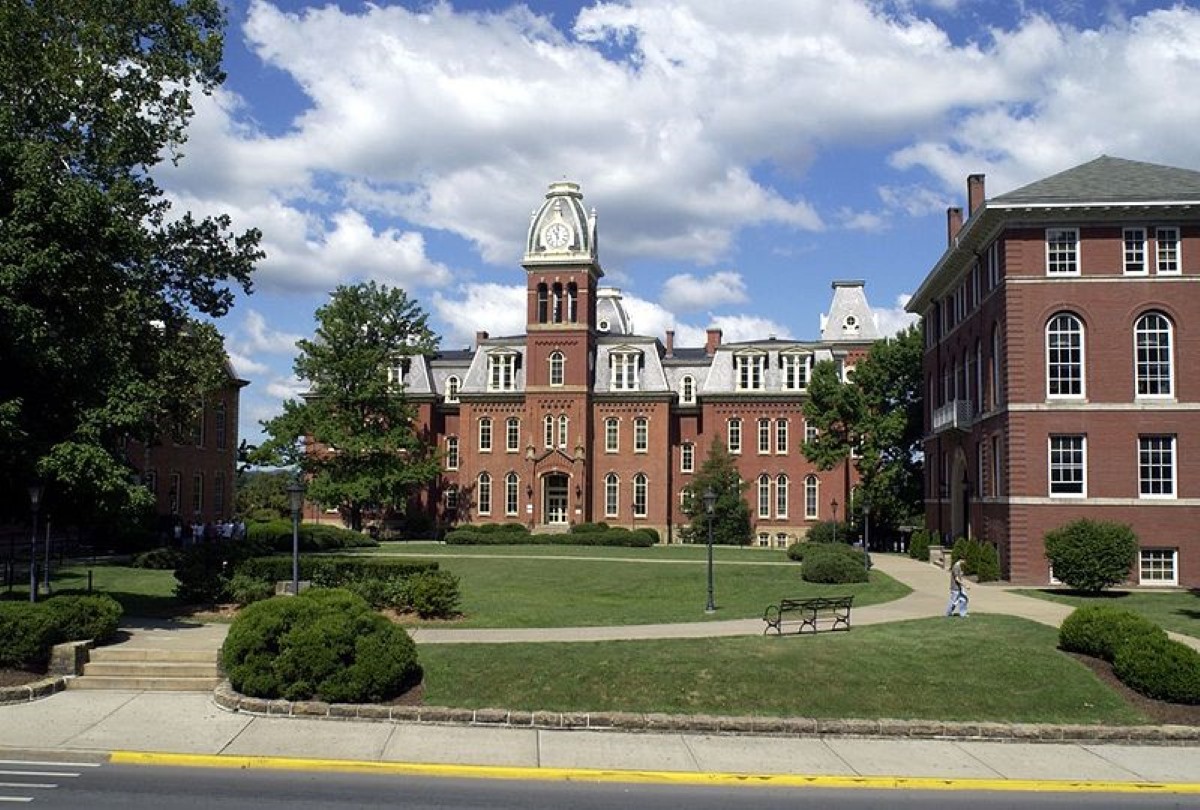Advocates are renewing calls to test and reduce the state’s incarcerated population, as its jails are once again overcrowded and more than 100 people have tested positive for the coronavirus in a state prison.
One of those advocates is Lida Shepherd, program director of the American Friends Service Committee, who is working on criminal justice reform in the state, along with West Virginia chapters of the ACLU, Americans for Prosperity and others.
“We think that it’s not hyperbole to say that a person who has not even been convicted of any crime could be facing a death sentence with the threat of COVID,” Shepherd said of the hundreds awaiting trial in state jails.
The population count in the state’s 10 regional jails dropped from 5,200 people on March 2 to almost 4,100 people on April 20. But numbers from the Division of Corrections and Rehabilitation show it was back up this week at more than 4,500.
That’s about 300 people over capacity, system-wide, with six out of 10 jails on Tuesday holding more people than their prescribed bed count.
The state’s 11 prisons were all under capacity on Wednesday. That includes the Huttonsville Correctional Center in Randolph County, where more than 100 people have tested positive for the coronavirus.
There were fewer people in jail earlier in the pandemic because police were making fewer arrests, more people were on parole and more low-risk, pre-trial defendants were released without cash bond. But now that in-person hearings have resumed and the Justice administration has eased social distancing guidelines, allowing law enforcement to take more people into custody, jail populations will only grow more and experience increased turnover, said Division of Corrections and Rehabilitation Commissioner Betsy Jividen.
During a Wednesday virtual press briefing, Jividen stated the DCR continues to review its protocols for testing as jails take on more people. She said the DCR is closely watching the Huttonsville prison in Randolph County, and how the virus has spread among the asymptomatic.
“It is going to instruct us on further operational ways to protect the population and in turn the community,” said Jividen, referring to the Huttonsville outbreak.
Gov. Jim Justice said during the same briefing he’d like to see the state test more than 9,300 people in the state’s custody, including the more than 4,700 people in state prisons, “as we continue to expand our testing capabilities.”
Corrections spokesman Lawrence Messina said Wednesday evening the DCR is “committed to carrying this out,” and continues to discuss resources and strategy with state health care leaders.
The governor confirmed last week that a 62-year-old man at Huttonsville was the first known prisoner in state custody to contract the coronavirus. Since then, the number of positive cases at Huttonsville has surpassed 100, with eight employees and 102 prisoners having tested positive by Wednesday afternoon. More than 300 tests were still processing in West Virginia labs.
It’s exactly what advocates say they worried about: people living in close quarters who might not be experiencing symptoms could infect each other, without the ability to stay at least six feet from other other people.
Through a statewide policy the DCR shared in April, facilities have enhanced cleaning procedures, Jividen said, and everyone is supposed to be provided with a mask. Further, in-person visitations have been canceled for now. The division has not posted policies developed by individual jails and prisons, for how they plan to enforce spacing requirements and mask-wearing.
“I think that there is still some inconsistency in terms of the precautions being taken in those facilities,” said attorney Jennifer Wagner from Mountain State Justice, which helped file legal action against the DCR for its handling of the pandemic in March. “But I think the really important thing to think about is that there is really no way for people to be able to maintain effective social distancing when they’re in a congregate setting. … The risk is never going to be zero, as long as we’re keeping people shoulder to shoulder in congregate settings.”
The roughly 1,030 people incarcerated at Huttonsville were all tested before Monday — plus about 30 people at the nearby work camp.
Outside Huttonsville, 43 tests were conducted total throughout the other 10 state prisons. In the state’s 10 regional jails, only a little over 90 tests have been conducted, according to data from the DCR provided Wednesday.
“This testing is going to have to be on a periodic basis, you know, because there is this turnover in facilities,” said Shepherd from the AFSC. “I think, inevitably, this isn’t going to be just a one-time thing. This is going to have to happen over time, while also doing everything we can to reduce the incarcerated population.”
Shepherd and others on a coalition for criminal justice reform have advocated for reduced jail and prison populations for the pandemic since March.
The group supports reducing the state’s traditionally overcrowded regional jails in general, even rallying behind a bill in the last legislative session for parole and bail reform for certain pre-trial defendants. That legislation is slated to take effect June 5, 2020.
Shortly before the governor’s press briefing, Randolph County Del. Cody Thompson, a Democrat, wrote the governor requesting statewide testing for all corrections staff and prisoners, stating concern specifically for Randolph County’s Tygart Regional Jail. That facility was nearly 80 people over capacity as of Wednesday.
Emily Allen is a Report for America corps member.
